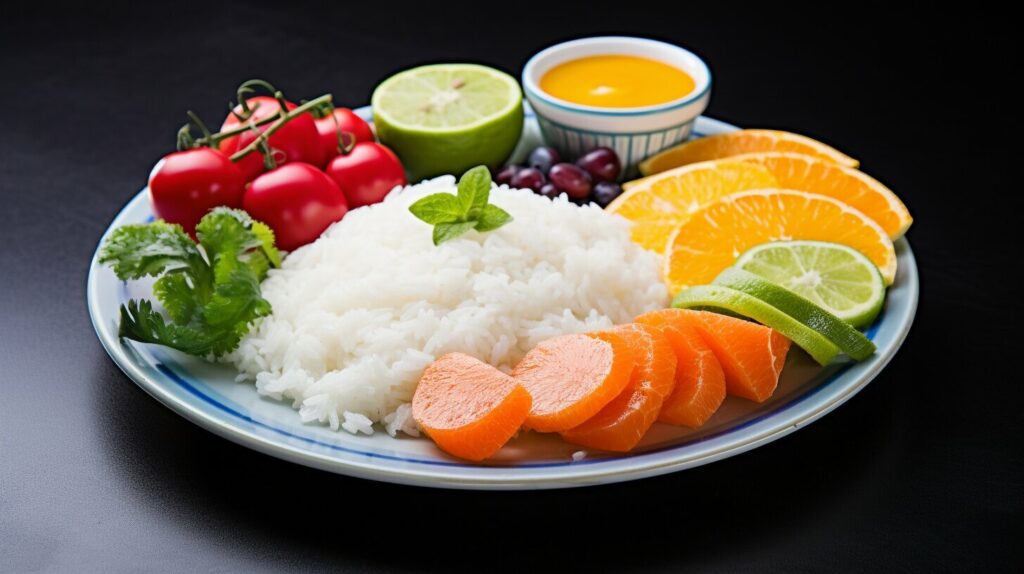Fasting has become a popular method for quick weight loss, but it’s crucial to prioritize your health and listen to your body’s signals. Recognizing the signs that indicate it’s time to stop water fasting can help prevent serious health issues.
During water fasting, if you experience symptoms such as exhaustion, discomfort, irritability, or sickness, it’s important to pay attention. Additionally, signs like dizziness, blurred vision, loss of consciousness, nausea, vomiting, acid reflux, diarrhea, indigestion, chest pain, stomach pain, menstrual irregularities, difficulty concentrating, confusion, disorientation, intense headaches, dry mouth, or bad breath require immediate attention and discontinuation of the fast.
Prolonged fasting can lead to problems like malnutrition, hair loss, weakened immune system, fertility issues, bone loss, stroke, mood swings, muscle cramps, heart palpitations, and low blood sugar. Your health should always be a priority, so don’t ignore these critical signs to stop water fasting.
Key Takeaways:
- Recognize signs such as dizziness, nausea, and loss of consciousness to stop water fasting immediately.
- Experiencing symptoms like diarrhea, intense headaches, or confusion requires discontinuation of the fast.
- Prolonged fasting can lead to serious health issues such as malnutrition and weakened immune system.
- Listen to your body and prioritize your health when practicing water fasting.
- Consult with a healthcare provider if you experience any concerning symptoms during water fasting.
The Importance of Staying Hydrated during Water Fasting
When you’re fasting, it’s essential to stay hydrated to avoid dehydration. Fasting can disrupt the body’s fluid balance, leading to dehydration if you’re not careful. Approximately 20 to 30% of the body’s fluid requirements come from food, so when you’re fasting and not consuming any food, it’s crucial to replace that lost fluid by drinking plenty of water. Dehydration can lead to kidney damage and other health issues.
To stay hydrated during water fasting, prevent thirst by drinking lots of water and prioritize staying hydrated throughout the fasting period. Remember that water is the best source of hydration, but you can also consume herbal teas or infusions without added sweeteners. Avoid caffeinated beverages and sugary drinks as they can further dehydrate your body. Make it a habit to carry a water bottle with you and sip on water regularly to keep your body hydrated.
Additionally, incorporating foods with high water content into your diet during non-fasting days can also contribute to your overall hydration. Fruits and vegetables like watermelon, cucumbers, strawberries, and lettuce have high water content and can help supplement your fluid intake. Eating these water-rich foods can also aid in reducing hunger pangs and providing essential nutrients to support your body’s needs.
Benefits of Staying Hydrated during Water Fasting
Staying hydrated during water fasting offers several benefits for your overall well-being. By maintaining proper hydration, you can help prevent common side effects of fasting such as headaches, dizziness, and fatigue. Hydration also plays a critical role in supporting your body’s natural detoxification processes, promoting healthy digestion, and optimizing cognitive function.

| Benefits of Staying Hydrated during Water Fasting |
|---|
| Prevents dehydration |
| Supports kidney function |
| Reduces the risk of headaches and dizziness |
| Aids in digestion |
| Promotes cognitive function |
Tips for Fasting Safely and Effectively
When embarking on a fasting regimen, it’s important to prioritize your health and ensure you fast safely and effectively. Here are some valuable tips to help you navigate your fasting journey:
Restrict Calorie Intake
Instead of completely eliminating all sources of food during fasting, consider restricting your calorie intake. This approach can help prevent extreme hunger and minimize the risk of weakness and bloating when breaking your fast. By consuming a small amount of healthy, nutrient-dense foods, you can provide your body with essential fuel and prevent potential health issues.
Keep Exercises Mild
During fasting, your body may have lower energy levels, so it’s essential to adjust your exercise routine accordingly. Start with mild exercises such as walking or gentle stretching and gradually increase the intensity as your body adapts to fasting. By avoiding strenuous workouts, you can prevent excessive fatigue and potential injuries, ensuring a safe and effective fasting experience.
Consider Nutritional Supplements
While fasting, it’s possible to miss out on essential nutrients that your body needs. To prevent deficiencies, consider incorporating nutritional supplements into your fasting routine. Consult with a healthcare provider to determine the suitable supplements for your specific needs and to address any potential nutrient deficiencies that may arise during fasting.
By following these tips, you can minimize the risk of health issues and make the most of your fasting journey. Remember to prioritize your health and listen to your body’s signals throughout the process.

The Benefits of Eating Whole Foods during Non-Fasting Days
Eating whole foods during non-fasting days is crucial for maintaining optimal health and supporting overall well-being. Whole foods, such as fruits, vegetables, whole grains, lean proteins, and healthy fats, provide essential nutrients that are necessary for our bodies to function properly. By incorporating these nutrient-rich foods into your diet, you can prevent deficiencies, reduce hunger pangs, and decrease the risk of severe illnesses like heart disease and cancer.
Whole foods offer a wide range of benefits that processed and refined foods simply cannot match. They are rich in vitamins, minerals, antioxidants, and fiber, all of which play a vital role in promoting good health. The combination of nutrients found in whole foods works synergistically to support various bodily functions, boost the immune system, and reduce inflammation. Moreover, consuming whole foods can also contribute to better digestion, improved energy levels, and enhanced cognitive function.
“Let food be thy medicine and medicine be thy food.” – Hippocrates
Incorporating whole foods into your non-fasting days can also help you maintain a balanced and sustainable diet. These foods are generally lower in calories and higher in nutrients compared to processed options, allowing you to feel satisfied and nourished without excessive calorie intake. Additionally, whole foods tend to be more filling due to their fiber content, which helps regulate appetite and supports healthy weight management.
When planning your meals on non-fasting days, strive to create a colorful and diverse plate filled with a variety of whole foods. Experiment with different recipes and flavors to keep your meals exciting and enjoyable. Remember to prioritize fresh, organic, and locally sourced options whenever possible, as they often contain higher levels of beneficial nutrients.

Table: Nutrient Comparison of Whole Foods vs. Processed Foods
| Nutrient | Whole Foods | Processed Foods |
|---|---|---|
| Vitamins and Minerals | Abundant | Often stripped or fortified |
| Fiber | High | Low |
| Antioxidants | Plentiful | Minimal |
| Added Sugars | Naturally occurring | Excessive |
| Trans Fats | Absent | Common |
As shown in the table above, whole foods outshine processed foods in terms of nutrient content. While processed foods may be convenient and tempting, they often lack the essential nutrients needed for optimal health. By prioritizing whole foods during your non-fasting days, you can provide your body with the nourishment it needs to thrive.
Importance of Protein Intake during Water Fasting
During water fasting, maintaining an adequate protein intake is crucial for supporting various bodily functions, especially muscle maintenance and repair. Protein plays a vital role in preserving muscle mass and preventing muscle breakdown during fasting. It becomes even more important when the body is deprived of other sources of energy and may rely on protein as a fuel source.
Increasing your intake of protein-rich foods can help ensure you meet your nutritional needs while fasting. Options such as chicken, eggs, cheese, fatty fish, and nuts are excellent sources of protein that can be incorporated into your fasting routine. These foods provide essential amino acids that support muscle integrity and overall health.
Protein also plays a role in regulating appetite and promoting satiety, which can be beneficial during fasting periods. Including adequate protein in your diet can help reduce feelings of hunger and prevent overeating when breaking the fast.
In addition to its role in muscle maintenance and appetite regulation, protein supports the immune system, aids in wound healing, and contributes to the production of enzymes and hormones in the body. Therefore, ensuring sufficient protein intake while water fasting is essential for overall health and well-being.

The Role of Protein in Fasting
Protein plays a significant role in fasting by helping to preserve lean body mass. When the body is fasting, it enters a state of ketosis, where it starts using stored fat for energy. During this process, the body may also break down muscle protein to meet its energy needs. By consuming adequate protein, you provide the body with an alternative source of energy, minimizing muscle breakdown and preserving muscle mass.
It’s important to note that while protein is essential during fasting, it’s best to consult with a healthcare professional to determine the appropriate amount for your specific needs. Factors such as age, activity level, and overall health should be considered when determining protein requirements.
Summary
Ensuring sufficient protein intake during water fasting is crucial for maintaining muscle mass, supporting overall health, and preventing muscle breakdown. Incorporating protein-rich foods such as chicken, eggs, cheese, fatty fish, and nuts into your fasting routine can help meet your nutritional needs and promote satiety. Protein also plays a role in regulating appetite and supporting the immune system. Consult with a healthcare professional to determine the appropriate amount of protein for your individual needs while water fasting.
The Dangers of Dehydration during Water Fasting
Dehydration is a significant concern during water fasting. When the body loses more fluid than it takes in, it upsets the balance of minerals and affects normal bodily functions. Dehydration can lead to symptoms such as dizziness, lightheadedness, fatigue, dry mouth, and decreased urine output. If left untreated, severe dehydration can cause serious complications such as seizures, brain damage, and even death. It’s important to stay vigilant and prioritize hydration to prevent dehydration during water fasting.
“Dehydration occurs when your body loses more fluid than you take in, and it can have serious consequences. During water fasting, the absence of food intake can lead to a higher risk of dehydration if you’re not careful. It’s essential to drink plenty of water throughout the fasting period to maintain proper hydration levels. Ignoring the signs of dehydration can have severe health consequences, so it’s crucial to stay aware of your body’s needs during fasting.”
Staying hydrated is a key strategy to avoid the dangers of dehydration during water fasting. It’s important to drink water regularly throughout the day to replenish the fluids lost during the fasting period. Aim to consume at least 8-10 glasses of water per day, and more if you are physically active or in a hot climate. Additionally, incorporating electrolyte-rich drinks or foods can help restore the body’s electrolyte balance and prevent dehydration.
| Signs of Dehydration during Water Fasting | Actions to Prevent Dehydration |
|---|---|
| Dizziness | Drink plenty of water |
| Lightheadedness | Consume electrolyte-rich drinks or foods |
| Fatigue | Avoid excessive physical exertion |
| Dry mouth | Avoid caffeine and alcohol, as they can contribute to dehydration |
| Decreased urine output | Monitor your urine color and volume; if it appears dark or scanty, increase your fluid intake |
By being aware of the signs of dehydration and taking proactive measures to prevent it, you can ensure a safe and healthy water fasting experience. Always listen to your body and prioritize your hydration needs to avoid the potential risks associated with dehydration.

Conclusion
In conclusion, water fasting can be an effective method for weight loss and improving overall health. However, it is crucial to recognize the signs that indicate when it’s time to stop fasting. Symptoms such as dizziness, nausea, vomiting, loss of consciousness, or severe abdominal pain should not be ignored and require immediate discontinuation of the fast.
Staying hydrated is essential during water fasting to prevent dehydration and maintain proper bodily functions. Drinking plenty of water throughout the fasting period can help prevent thirst and potential health issues associated with dehydration.
Fasting safely and effectively requires restricting calorie intake, engaging in mild exercises, and considering nutritional supplements to prevent extreme hunger, weakness, and nutrient deficiencies. Consulting with a healthcare provider before starting any fasting regimen is highly recommended to address individual needs and potential risks.
While water fasting provides benefits, it is equally important to prioritize whole foods during non-fasting days to optimize nutrition and support overall health. Including a variety of fruits, vegetables, whole grains, lean proteins, and healthy fats in the diet can help prevent deficiencies and reduce the risk of severe illnesses.
In summary, water fasting can be a valuable tool for achieving health and weight loss goals, but it must be done with caution and consideration for individual needs. Recognizing the signs to stop, staying hydrated, practicing safe fasting strategies, and incorporating whole foods are key to a successful fasting journey.
FAQ
What are the signs that indicate it’s time to stop water fasting?
Some signs include exhaustion, discomfort, irritability, sickness, dizziness, blurred vision, loss of consciousness, nausea, vomiting, acid reflux, diarrhea, indigestion, chest pain, stomach pain, menstrual irregularities, difficulty concentrating, confusion, disorientation, intense headaches, dry mouth, or bad breath. If you experience any of these symptoms during water fasting, it is crucial to discontinue the fast immediately.
How can I stay hydrated during water fasting?
To stay hydrated, prevent thirst by drinking lots of water throughout the fasting period. Approximately 20 to 30% of the body’s fluid requirements come from food, so when you’re fasting and not consuming any food, it’s crucial to replace that lost fluid by drinking plenty of water. Staying hydrated is important to avoid dehydration, which can lead to kidney damage and other health issues.
What are some tips for fasting safely and effectively?
Restrict your calorie intake instead of eliminating all sources of food during fasting. This can help prevent extreme hunger and minimize the risk of weakness and bloating when breaking the fast. Keep exercise mild during fasting as your body may have lower energy levels. Start with mild exercises and gradually increase intensity. Taking nutritional supplements can help provide essential nutrients missed during fasting. It’s important to consult with a healthcare provider before starting any fasting regimen.
Why is it important to eat whole foods during non-fasting days?
Eating whole foods helps prevent deficiencies, hunger pangs, and reduces the risk of severe illnesses like heart disease and cancer. Whole foods provide essential nutrients and support overall health and well-being. Include a variety of fruits, vegetables, whole grains, lean proteins, and healthy fats in your diet during non-fasting days to optimize nutrition and support your body’s needs.
How important is protein intake during water fasting?
Protein is essential for muscle maintenance and repair. During water fasting, the body may rely on protein as an energy source. To ensure you maintain muscle mass and meet your protein needs, increase intake of protein-rich foods like chicken, eggs, cheese, fatty fish, and nuts.
What are the dangers of dehydration during water fasting?
Dehydration can lead to symptoms such as dizziness, lightheadedness, fatigue, dry mouth, and decreased urine output. If left untreated, severe dehydration can cause serious complications such as seizures, brain damage, and even death. Staying vigilant and prioritizing hydration is important to prevent dehydration during water fasting.




